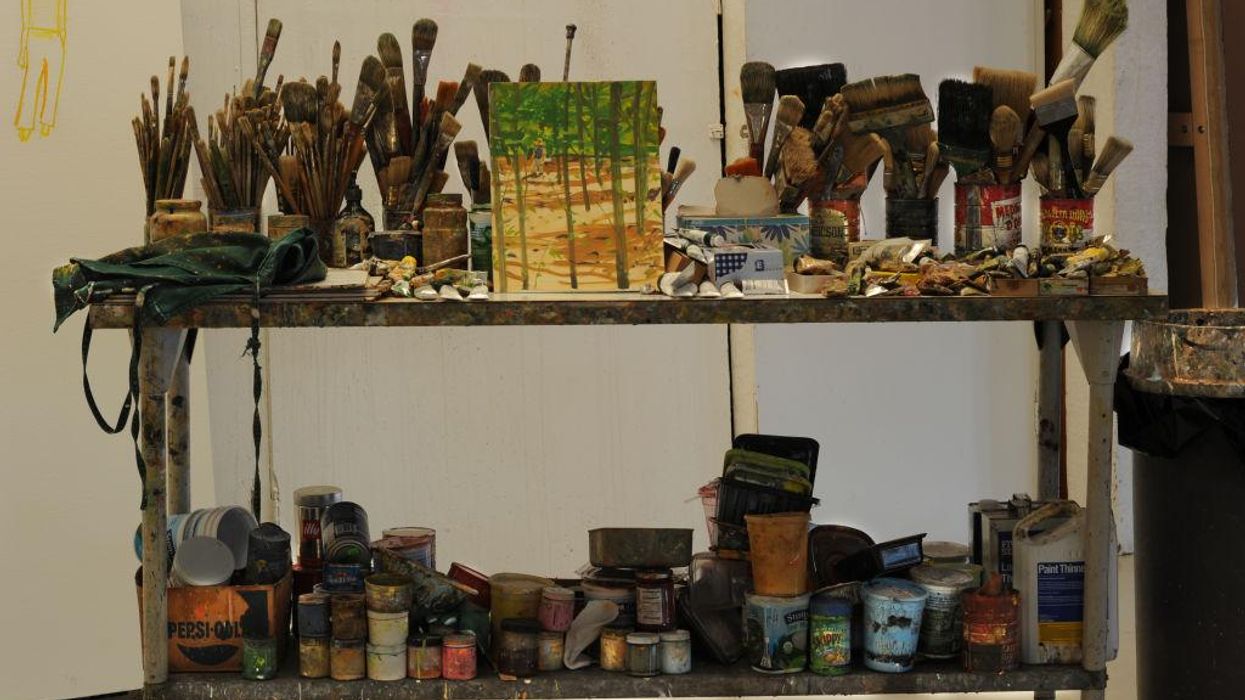
Photo by Catherine Panchout/ Sygma via Getty Images

Under the category "Digital Arts / Digitally-Manipulated Photography" at this year's Colorado State Fair's fine arts competition, Jason Allen entered a piece entitled "Théâtre D’opéra Spatial" and took home the first-place prize. Although Allen regarded the way in which he constructed his winning piece as integral to the statement he sought to make, his method and statement were not well received by all.
One Twitter user lamented Allen's success, reported the Verge, claiming "We're watching the death of artistry unfold right before our eyes."
The trouble with Allen's work, at least according to some critics, was not its quality but rather the method of its creation: Allen used an artificial intelligence to generate the image.
The particular program Allen utilized to produce the work is called the Midjourney Bot: an AI-powered tool that can construct a visual interpretation of a textual description. It is one of a growing number of such programs and sites.
The program is used in this way: a user types "/image" into the chat box. This creates a prompt field wherein the user can insert a textual description of things, people, places, abstract concepts, and interactions between some or all of the above. The program, relying upon AI, then generates an image, which can be further edited and refined.
Here is an example of a pair of images that Twitter user Eroteme Art claims to have generated using the prompt "It Was Clear, We Had Drifted Apart."
There are myriads styles, textures, and looks achievable with this technology.
The work below from Twitter user Radiant Descent, like Allen's prize-winning piece, is painterly and coherent.
The independent research lab behind this image generator claims to be set on "exploring new mediums of thought and expanding the imaginative powers of the human species."
Although it remains in beta mode, Midjourney has already cultivated a significant community, with over 32,000 members in its Reddit group. Despite earlier short-termed beta releases, founder David Holz announced on July 26 that it had been made available to the public.
Allen regards AI, particularly Holz's Midjourney, as a powerful tool that artists ought to embrace. He stressed that Midjourney still involves creativity and meaningful human input. "I made the prompt, I fine tuned it for many weeks, curated all the images," he said, noting that the work underwent nearly 900 iterations.
According to Vice, Allen took to the Midjourney Discord server on August 30 and wrote: "How interesting is it to see how all these people on Twitter who are against AI-generated art are the first ones to throw the human under the bus by discrediting the human element! Does this seem hypocritical to you guys?"
Allen suggested that behind the hypocrisy and animosity is fear. "Artists are scared," he said. "They're worried that they're going to be replaced by the robot." He likened the backlash against his submission to the opposition raised to other technologies, such as photography, when they were were first introduced.
Notwithstanding claims that Allen cheated, the fair's General Manager Scott Stoller said the entry satisfied the judging guidelines.
Stoller noted that the debate that has been prompted by Allen's victory may impact the parameters and guidelines in subsequent contests. "I think this is a conversation that we'll have with the art community after this year's fair."
The use of AI-generated imagery presents additional issues moving forward, and not just for the Colorado State Fair.
Concept artists and book cover designers may soon find themselves struggling to find work, particularly the latter if self-published authors turn to AI image generators moving forward. RJ Palmer, an artist who worked on the film Detective Pikachu, told Kotaku that he "could easily envision a scenario where using AI a single artist or art director could take the place of 5-10 entry level artists."
AI-generated images also raise questions regarding copyrights. If an individual or a company wants to avoid paying for a copyrighted image, they could alternatively have an AI like Midjourney create a knock-off version. "These platforms are washing machines of intellectual property," said established artist Jon Juárez.
The sword cuts both ways. While such generators can be used to circumnavigate copyrights, their productions may prove difficult to copyright. The U.S. Copyright Office ruled in February that "human authorship is a prerequisite to copyright protection."
Though creatives like Jason Allen may continue to win and awe with AI-generated images, there remains social and legal uncertainty about whether the winning images are their intellectual property.